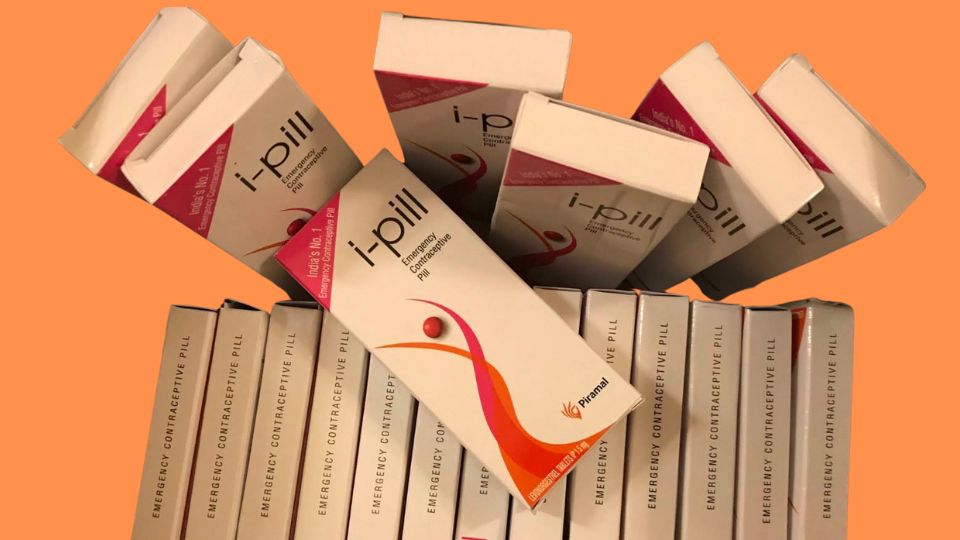Welcome to your one-stop guide on the i-Pill, a widely used emergency contraceptive in India. Whether you’re here to understand what is i-Pill, how it works, or its side effects, this blog is written in a simple, friendly, and trustworthy tone to help you make informed decisions. We’ll cover everything from i-Pill tablet uses to how to take i-Pill, ensuring you have all the details you need. Let’s dive in!
What is i-Pill?
The i-Pill is an emergency contraceptive pill designed to prevent unintended pregnancy after unprotected sex or contraceptive failure (like a broken condom). It’s a popular choice in India because it’s easily available over-the-counter at pharmacies. The active ingredient in the i-Pill tablet is Levonorgestrel, a synthetic hormone that mimics progesterone, a natural hormone in the body.
Unlike regular birth control pills, the i-Pill is not meant for daily use. It’s a backup option for emergencies only. So, if you’re wondering, “What is i-Pill?”—it’s your safety net when other contraception methods fail or aren’t used.
i-Pill Tablet Uses
The primary use of the i-Pill tablet is to prevent pregnancy in emergency situations. Here are some common scenarios where it comes in handy:
- Unprotected Sex: If you’ve had sex without using any contraception.
- Contraceptive Failure: When a condom breaks, slips, or another method fails.
- Missed Birth Control Pills: If you forgot to take your regular contraceptive pill and had unprotected sex.
The i-Pill works best when taken as soon as possible after the incident, ideally within 72 hours (3 days). It’s a reliable option for women in India looking to avoid an unplanned pregnancy.
How i-Pill Works
Curious about how i-Pill works? It’s pretty straightforward! The Levonorgestrel in the i-Pill tablet acts in one of three ways, depending on where you are in your menstrual cycle:
- Delays Ovulation: If you haven’t ovulated yet, the pill stops your ovary from releasing an egg, so there’s nothing for the sperm to fertilize.
- Prevents Fertilization: If the egg is already released, it thickens cervical mucus, making it harder for sperm to reach the egg.
- Stops Implantation: In rare cases, if fertilization happens, it may alter the uterus lining to prevent the fertilized egg from attaching.
Important note: The i-Pill does not work if you’re already pregnant, and it’s not an abortion pill. It’s purely for prevention.
When to Take i-Pill
Timing is everything with the i-Pill. So, when to take i-Pill? The golden rule is: the sooner, the better. Here’s a quick breakdown:
- Within 24 Hours: Most effective (up to 95% success rate).
- Within 48 Hours: Still highly effective (around 85%).
- Within 72 Hours: Effectiveness drops to about 58%, but it’s still worth a shot.
After 72 hours, the i-Pill isn’t recommended as its effectiveness decreases significantly. So, don’t wait—act fast!
How to Use i-Pill
Wondering how to use i-Pill? It’s super simple and doesn’t require a complicated process. Follow these steps:
- Get the Pill: You can buy the i-Pill tablet from any pharmacy in India without a prescription.
- Take It: Swallow one tablet with water as soon as possible after unprotected sex. No need to chew or crush it.
- With or Without Food: You can take it with or without food, but if you’re prone to nausea, having a light snack might help.
If you vomit within 2-3 hours of taking it, the pill might not have been absorbed properly. In that case, consult a doctor or pharmacist about taking another dose.
How to Take i-Pill Safely
To ensure you’re using it correctly, here are some tips on how to take i-Pill safely:
- Stick to the Dose: One tablet is enough. Don’t take more than one in a single cycle unless advised by a doctor.
- Not a Regular Option: The i-Pill is for emergencies only—using it too often can mess with your hormones.
- Check Expiry: Always look at the expiry date on the pack before taking it.
- Consult if Needed: If you have health conditions like liver issues or are breastfeeding, talk to a doctor first.
Safety first, right? It’s a simple step that can save you from unnecessary worry.
i-Pill Side Effects
Like any medication, the i-Pill can have side effects. Don’t panic—most are mild and temporary. Here’s a list of common i-Pill side effects:
- Nausea or Vomiting: Some women feel queasy after taking it.
- Fatigue: You might feel tired or drowsy for a day or two.
- Headache: A mild headache is possible.
- Irregular Periods: Your next period might come early, late, or be heavier/lighter than usual.
- Breast Tenderness: Temporary soreness in the breasts can occur.
- Spotting: Light bleeding or spotting between periods is common.
These side effects usually fade within a few days. However, if you experience severe pain, heavy bleeding, or dizziness that doesn’t go away, see a doctor immediately.
i-Pill Tablet Price in India
One of the best things about the i-Pill is its affordability. The i-Pill tablet price in India typically ranges between ₹75 to ₹110 for a single tablet, depending on the pharmacy or online platform. Here’s a quick look:
- Local Pharmacy: Around ₹75-₹90.
- Online Stores: Sites like 1mg, Netmeds, or PharmEasy often offer it for ₹80-₹110, sometimes with discounts.
It’s widely available across India, so you won’t have trouble finding it when you need it. Just ensure you’re buying from a trusted source to avoid fake products.
Who Should Avoid i-Pill?
While the i-Pill is safe for most women, it’s not for everyone. Avoid it if:
- You’re already pregnant (it won’t work and could cause complications).
- You’re allergic to Levonorgestrel.
- You have serious liver or kidney problems.
- You’re under 16 or over 45 (consult a doctor first).
If you’re unsure, a quick chat with a healthcare professional can clear things up.
Benefits of i-Pill
The i-Pill tablet offers some great advantages:
- Convenience: No prescription needed, and it’s easy to use.
- Effective: When taken on time, it significantly reduces pregnancy risk.
- Peace of Mind: It’s a reliable backup when things don’t go as planned.
It’s not a replacement for regular contraception like condoms or pills, but it’s a lifesaver in emergencies.
Things to Keep in Mind
Here are some extra tips to ensure you’re using the i-Pill wisely:
- Not 100% Guaranteed: It reduces the risk but isn’t foolproof.
- No STI Protection: It won’t protect you from sexually transmitted infections—use condoms for that.
- One-Time Use: Don’t rely on it repeatedly in the same cycle; it’s not designed for that.
Being informed helps you use it responsibly!
i-Pill vs. Regular Contraceptives
The i-Pill is different from daily birth control pills. Regular contraceptives are taken daily to prevent pregnancy long-term, while the i-Pill is a one-time, high-dose option for emergencies. Think of it as a “Plan B,” not your “Plan A.”
For ongoing protection, consider options like:
- Condoms (also protect against STIs).
- Oral contraceptive pills.
- Intrauterine devices (IUDs).
Talk to a doctor to find what suits you best.
Why i-Pill is Popular in India
The i-Pill has become a go-to choice in India because:
- It’s easily accessible without a prescription.
- It’s affordable compared to other emergency options.
- Awareness about emergency contraception is growing, especially among young women.
It’s empowering to have control over your reproductive choices, and the i-Pill makes that possible.
Frequently Asked Questions (FAQ) About i-Pill
Here’s a handy FAQ section to answer your burning questions about the i-Pill:
1. What is i-Pill used for?
The i-Pill is an emergency contraceptive used to prevent pregnancy after unprotected sex or contraceptive failure. It’s not for regular use or abortion.
2. When should I take i-Pill?
Take it as soon as possible within 72 hours of unprotected sex. The earlier, the better—ideally within 24 hours.
3. How do I use i-Pill?
Swallow one i-Pill tablet with water. Don’t chew or crush it. Take it within 72 hours of unprotected sex.
4. What are the side effects of i-Pill?
Common i-Pill side effects include nausea, fatigue, headache, irregular periods, and spotting. They’re usually mild and temporary.
5. How much does i-Pill cost in India?
The i-Pill tablet price ranges from ₹75 to ₹110, depending on where you buy it.
6. Can I take i-Pill regularly?
No, the i-Pill is for emergencies only. Using it often can disrupt your hormones and isn’t as effective as regular contraception.
7. Does i-Pill protect against STIs?
No, it only prevents pregnancy, not sexually transmitted infections. Use condoms for STI protection.
8. How does i-Pill work?
It delays ovulation, prevents sperm from reaching the egg, or stops a fertilized egg from implanting in the uterus.
9. Can I take i-Pill if I’m breastfeeding?
Consult a doctor first, as the hormone may pass into breast milk.
10. What if I miss my period after taking i-Pill?
Irregular periods are a common side effect. If your period is delayed by more than 3 weeks, take a pregnancy test to be sure.
Final Thoughts
The i-Pill is a safe, effective, and affordable emergency contraceptive option for women in India. Whether you’re curious about i-Pill tablet uses, how to take i-Pill, or its side effects, we hope this guide has cleared things up for you. It’s all about being prepared and making choices that work for you.
If you found this blog helpful, share it with someone who might need it. And if you have more questions, feel free to ask in the comments—we’re here to help! Stay informed, stay safe, and take care.




